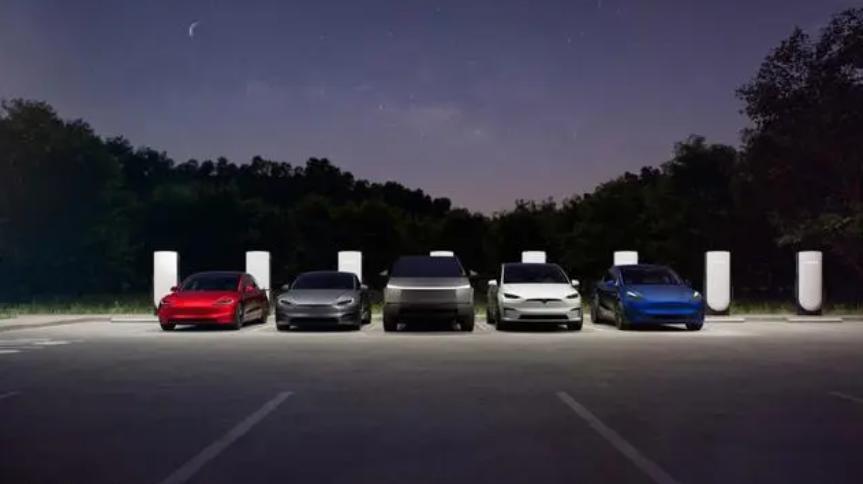
The slowdown in the adoption of electric vehicles in the United States is likely to worsen as the next president, Donald Trump, has promised to scrap tax credits for electric vehicles. Automotive forecaster GlobalData has cut its estimate for electric vehicle market share in the United States in 2030 to 28 percent from 33 percent. "The transition to electric vehicles in the U.S. will be stunted under the Trump administration," GlobalData's vice president of automotive research said in a note. He said Trump's focus on lowering gas prices and easing emissions standards could reduce the market share of electric vehicles by "15 to 20 percent."
The decline in the market share of electric vehicles nationwide in the United States has a complex and multi-faceted impact on the economy, one is the impact on the automobile industry and the job market, and the decline in the market share of electric vehicles means that the sales revenue of automobile manufacturers in the field of electric vehicles will decrease, which will affect their overall profits. As the market share of electric vehicles declines, automakers are likely to reduce their investment in electric vehicles and instead invest in other types of vehicles, such as hybrids or conventional fuel vehicles. This investment adjustment could lead to a slowdown in research and development of electric vehicle technology, innovation and job losses in the related industry chain. At the same time, because the manufacturing process of electric vehicles is more complex than that of traditional fuel vehicles and involves a longer industrial chain, the decline in the market share of electric vehicles may have a negative impact on the job market and related enterprises in its industrial chain, such as battery manufacturers and motor manufacturers. These companies may face problems such as reduced orders and overcapacity. Car manufacturers and related suppliers may reduce the number of employees, thereby increasing unemployment. Automakers are also likely to accelerate their transition to the hybrid or conventional fuel vehicle market, which could lead to changes in the internal structure of the automotive industry. The contraction of the electric vehicle industry will directly affect the employment situation in the relevant industrial chain.
The second is the impact on the energy market, with the decline in the market share of electric vehicles, will reduce the consumption of electricity in the field of transportation, and the recovery of the traditional fuel vehicle market will increase the demand for oil. This may lead to changes in the structure of energy consumption, increasing energy security and environmental protection challenges. At the same time, this will have a certain impact on the oil market, which may lead to fluctuations in oil prices. As a representative of clean energy, the declining market share of electric vehicles may reduce the incentive to invest in renewable energy and increase carbon emissions in the transport sector, which will exacerbate environmental pressure. Because the popularity of electric vehicles has helped drive the development of renewable energy, and the declining market share of electric vehicles could weaken this momentum. This could prompt the government to step up its environmental policies and push the auto industry in a greener direction.
The third is the consumer and fiscal impact, the repeal of the electric vehicle tax credit policy will make the cost of buying electric vehicles for consumers and the government's tax revenue in this area will be greatly reduced. Because the electric vehicle tax credit is a tax incentive created by the government to encourage consumers to buy electric vehicles, repealing the policy would make it impossible for the government to collect this tax. This could reduce consumers' willingness to buy electric vehicles in favor of conventional fuel vehicles or other types of vehicles. As the market share of electric vehicles declines, consumers may be limited in their range of choices when buying a car. Because the contraction of the electric vehicle market will reduce the variety and number of electric vehicles on the market. At the same time, the money raised by the electric vehicle tax credit is often used to support environmental projects and clean energy development. Repealing the policy will reduce this funding source, which will affect the development of environmental projects and clean energy.
To sum up, the repeal of the EV tax credit, which Trump has promised, would have a multifaceted impact on the economy. Therefore, policy makers need to fully consider the comprehensive impact of various factors when formulating relevant policies to ensure the rationality and effectiveness of policies.

报告显示,中国电力投资加速增长,预计2024年电网基建投资将超过5300亿元。
近日,市场迎来了一则引人注目的消息:工业巨头3M公司(MMM.N)在本周五公布了其季度业绩报告,随后股价飙升至近两年来的
最近,外媒给OpenAI算了笔账,今年可能要血亏50亿美元。
近日,巴黎奥运会和世界铁人三项协会联合发布了一项重大决定,宣布因塞纳河水质污染问题,原定于近期进行的奥运会铁人三项首次下
当地时间7月18日,法国巴黎发生了一起令人震惊的持刀袭警事件。
近期,一则重大消息在国际舞台上引起轩然大波,马来西亚宣布加入金砖国家。
调查发现,互联网和智能手机的使用干扰了韩国近五分之一学生的生活。